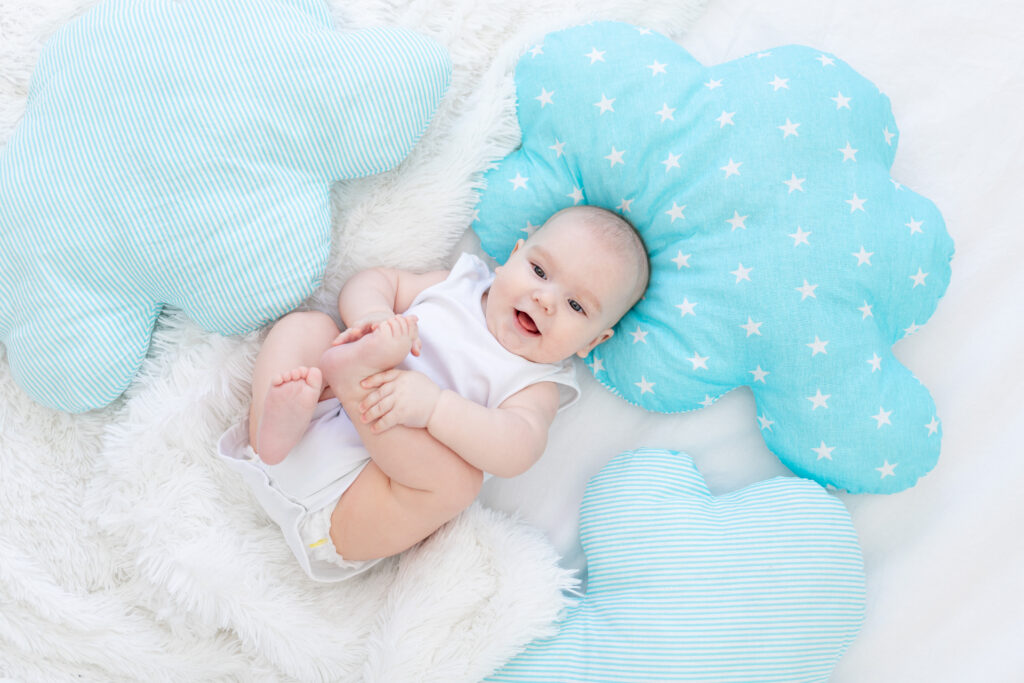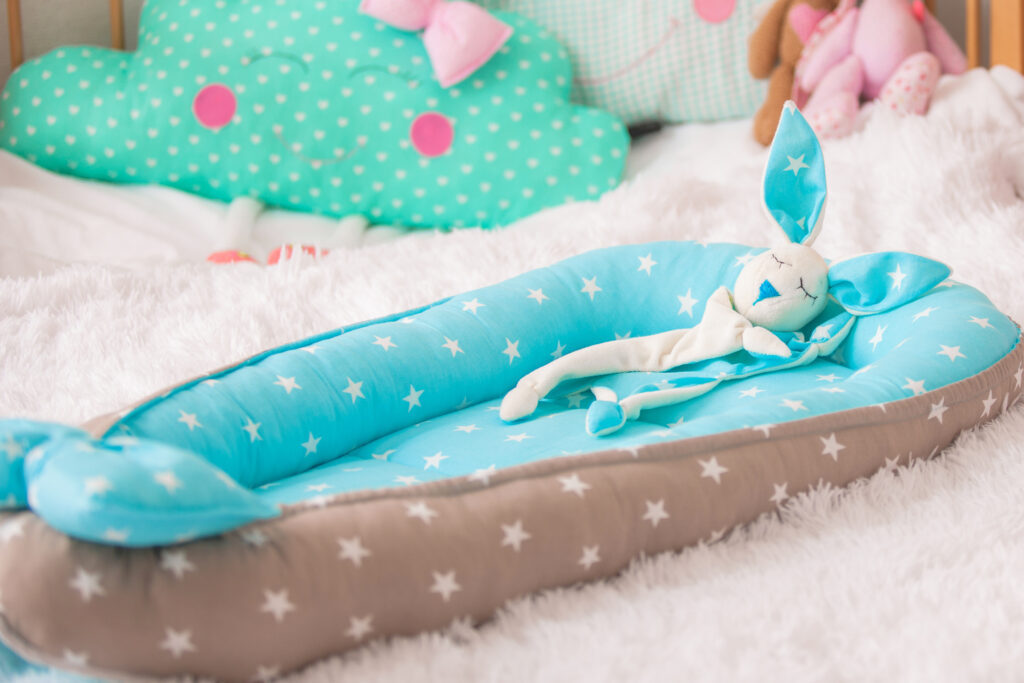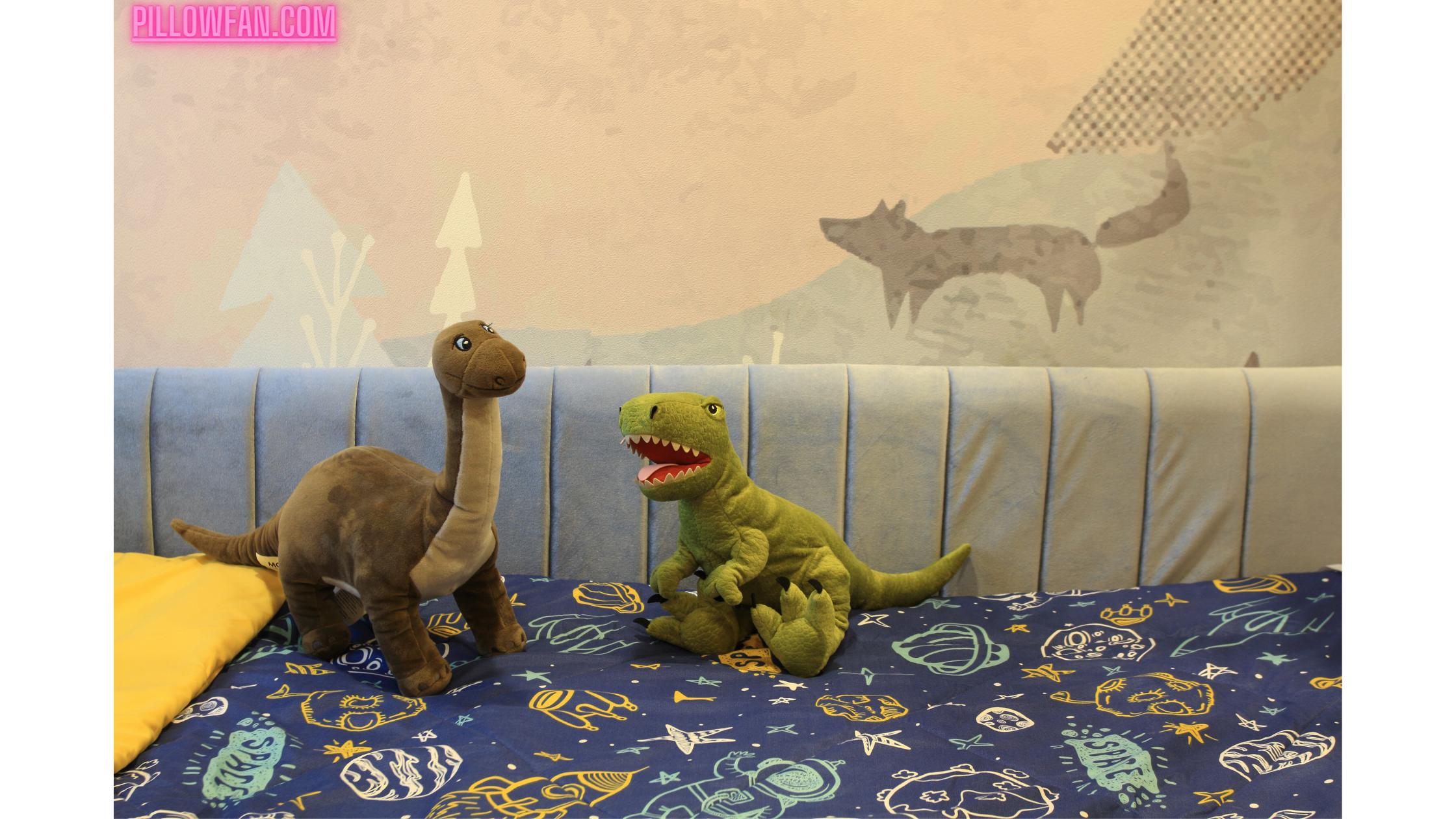Introduction:
Baby Pillow is such a great innovation in the world of bedding. Every little thing counts when it comes to assuring your precious child’s comfort and safety. The selection of a baby pillow is one issue that is often overlooked. The appropriate baby pillow may have a significant influence on your baby’s sleep quality and general well being even if it may appear like a simple item.
These pillows are very beneficial for your child because it promotes a healthy spine alignment and promotes the proper flow of air. They provide customized support to the baby and are easily portable from one place to another. This article will further delve in the world of baby pillows, its importance, benefits and advantages, types of baby pillows, factors to consider and tips for care and maintenance.
Table of Contents
The Importance of Baby Pillow:
A baby pillow is an essential part of your baby’s sleeping environment rather than just a decorative item. These pillows are very importance because of following reasons:
Supporting Proper Sleep Position:
Sleep takes up an important portion of the day for newborns and toddlers. A baby pillow is necessary for supporting their sensitive head and neck. An appropriate pillow can help in maintaining a secure and comfortable sleeping position, eliminating any neck strain.

Promoting Airflow:
Babies may not be able to move or adjust themselves when sleeping since they are still developing. The ideal baby pillow is made to offer the perfect amount of support and ensure ideal airflow, lowering the danger of suffocation and promoting peaceful sleep.
Benefits and Advantages of Baby Pillow:
Baby Pillows are very popular due to their numerous benefits and advantages which are as following:
Enhanced Comfort and Support:
Babies need a nice sleeping environment just like adults do. Your infant may rest their head on a pleasant surface due to a soft and properly sized baby pillow. This extra comfort can lead to deeper, more restful sleep.
Healthy Cranial Development:
The early years of life are when a baby’s skull is most adaptable and vulnerable. The condition known as flat head syndrome which is also called positional plagiocephaly can be avoided by using a baby pillow with the appropriate head and neck support. The little elevation provided by the pillow promotes symmetry in the form of the head and reduces the probability of flat spots.
Reduced Reflux and Colic:
Elevating your baby’s head slightly with a pillow can alleviate symptoms of reflux and colic by promoting digestion and reducing discomfort.
Promotion of Safe Sleep:
Some baby pillows are made of materials that breathable, lowering the possibility of suffocation and promoting a secure sleeping environment for your child.
Customized Comfort:
Baby pillows come in different sizes and shapes to fulfill the requirements of different babies. It will help you to choose the best pillow which meets your baby’s specific requirements that support and comfort. Also, you can even customize your own designs.
Portability:
The many infant pillows are small and lightweight which makes them simple to transport while traveling or even when you are home.
Multi-functional:
Baby pillows can be used for a variety of things, such supporting the baby during tummy time or facilitating nursing or bottle feeding.

Types of Body Pillow:
To facilitate the need of different individuals, these pillows are manufactured in different types which are explained as following:
Flat Head Prevention Pillow:
These pillows are designed to help in the prevention of positional plagiocephaly which is commonly referred to as flat head syndrome. They often have a concave center to support the baby’s head and distribute pressure evenly. They are typically created from soft, breathable fabrics.
Wedge Pillows:
Wedge pillows are usually used to slightly raise the head of a newborn in order to treat conditions like reflux or congestion. By keeping the infant’s head slightly lifted while sleeping, they can also be used to avoid flat head syndrome.
Travel Pillows:
These are portable pillows that are smaller in size and can fit in strollers or car seats. They provide significant head and neck support for the infant when they are traveling.
Nursing Pillows:
Nursing pillows are used by mothers to assist their infants while nursing or bottle feeding so they are basically to assist the parents more rather than babies. They help with putting the infant in a comfortable eating position at the appropriate height.
Sleep Positioner:
These pillows include bolsters or cushions on the sides that are designed to maintain the infant in a certain sleeping posture while they are being used. Due to safety issues, several experts advise avoiding using sleep positioners.
Crib Decorative Pillows:
It is not advised to use these pillows in the baby’s crib when they are sleeping because they are mostly intended for decoration. They may provide a risk of asphyxia.
Hypoallergenic:
Some parents like pillows made of natural materials that are organic or hypoallergenic since they are less likely to cause irritation to their children’s skin or trigger allergies.
Tummy Time Pillows:
Tummy time is important for a baby’s growth. Tummy time pillows give infants a cozy surface on which to practice raising their heads while developing the muscles in their neck and upper body.

Factors to Consider Before Choosing the Baby Pillow:
It is very important to consider all the factors before buying the pillow for your baby.
Material and Fill:
A baby pillow’s material and filling should be carefully considered. Choose fabrics that are breathable and hypoallergenic to reduce the possibility of allergies and to ensure that air can properly circulate around your baby’s head. A great balance between comfort and support can be found in memory foam or down-alternative pillows.
Proper Size and Shape:
Baby pillows come in different of sizes and shapes fulfill different requirements. Select a size that fits properly without leaving any gaps within the crib or cot. The baby’s head, neck, and shoulders are further supported by contoured pillows.
Age Appropriateness:
The growth and development of babies happens quickly. The pillow you select must be suitable for the child’s age. To reduce the risk of asphyxia, it is advised for newborns and young babies to sleep on a flat, firm pillow. A slightly shaped pillow for increased support as your child develops is something you might want to think about.
Tips for Maintenance and Care:
To ensure the longer and durable results, it is important to follow the following steps and instructions:
Pillow Protector:
Purchase a high-quality, breathable pillowcase that perfectly matches the pillow. The pillow will be protected against spills and stains as a result.
Frequent Washing:
Wash the pillow and pillowcase often using a soft cycle and light detergent, as directed by the manufacturer.
Spot Cleaning:
To stop stains from settling, clean them gently as soon as possible.
Sun Airing:
Allow the pillow to dry out in the sun on sunny days to get rid of any smells and moisture.
Conclusion:
In conclusion, the sleep of you baby is very important and it should be your first priority. You may make an informed decision that benefits your baby’s overall health by taking into account like age appropriateness, pillow material, and size. For relaxing and undisturbed sleep, keep in mind to contact your child’s doctor and highlight safety precautions.
FAQ’s:
Are baby pillow safe?
Usually baby pillows are safe but it is not advised to use the baby pillow until your baby turns one or two and also make sure that size, firmness and everything is accordingly to your baby’s need.
Which baby pillow is the best?
The baby pillow is considered best which is firm yet comfortable and are appropriate size according to the baby’s head.
Can baby pillow treat flat head?
The use of newborn head shape pillows to treat or prevent flat head syndrome or other medical issues is neither safe nor effective.


